#ya book characters
Text
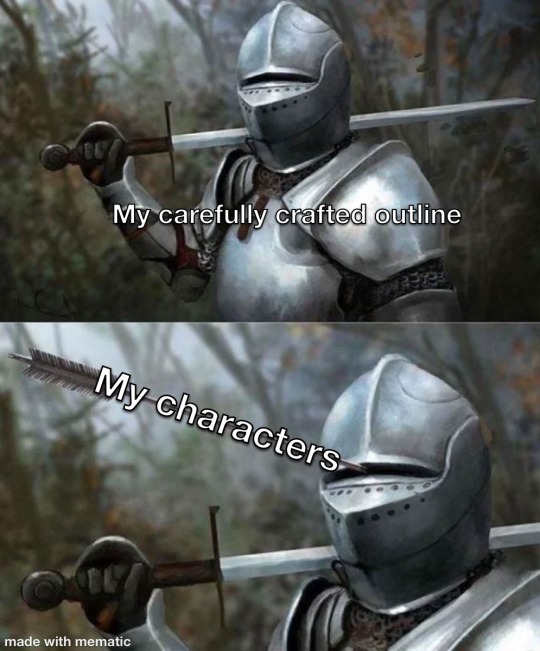
#they live#writing#writeblr#my writing#fantasy#fantasy author#romantasy#ya fantasy#writerscommunity#ya romance#novelist#my characters#feral writing#writing memes#writers#romance writing#writer#writers of tumblr#writing humor#writing blog#writing community#creative writing#writers on tumblr#ya fantasy author#authors#author#poc author#fantasy books#romance books#romance
2K notes
·
View notes
Text

How many ways can I draw this couple kissing? I found a ton of these while putting together my 2023 artvsartist grid. Way more than what's here, but these are the ones that I like, that have no background, and won't get me banned on social media haha
#beauty and the beast#ya fantasy#monster boyfriend#fairytale retelling#monster romance#fantasy illustration#retellings#book characters#ekbelsher
2K notes
·
View notes
Text
The Most Powerful Hack to Make Your Readers Cry
You’ve seen it all: show, don’t tell, plant a visceral image in the reader’s brain of the environment/character, write a complex character arc with lots of growth and setbacks, establish deep relationships, high stakes, etc.
All the advice for making readers cry I’ve seen so far is basically that list. But, while those things are absolutely important, I find that the thing that always does the trick, whether as a tipping point or in and of itself, is this:
THE CALLBACK!
Before we move on, this is an ANALYSIS heavy post, so all the book + show examples contain spoilers!!
So, what do I mean by a “callback?” Think of Chekhov’s gun, but, here, you use the gun to pierce your reader’s heart. As a refresher for anyone who needs it, Chekhov’s gun is just a rule in writing that anything you introduce in the book should play some role in the plot.
Specifically, the name comes from the example that if a reader introduces a gun in the first act, it MUST go off later, (maybe, say, in the third act). For example, in the TV show Breaking Bad, the protagonist Walter White prepares a vial of poison (ricin) that he wanted to use to eliminate an opponent early on in the series. After the assassination attempt falls through, the ricin makes an appearance again in the very last episode of the show, when Walt finally uses it to kill another opponent.
Got that? Alright, onto the examples of successful, tearjerking callbacks:
1. The Last Olympian (Rick Riordan); “Family, Luke, you promised.”
Context: The character Annabeth says this line. Years ago, Annabeth had run away from home, and Luke had effectively adopted her into a found family with another kid named Thalia. Common reason for leaving home = parental trauma! Yay! He promised Annabeth that they would be each other’s “family” from now on.
Now: Kronos, the antagonist titan, has possessed the demigod Luke and uses his body to strike Annabeth, injuring her. She’s also holding a dagger that Luke had given her when she joined his “family.”
Significance: her words + the dagger are a mental + physical reminder to Luke of his promise. They force him to recognize the sheer degree of his current betrayal by bringing him back to a different time. The fact that their found family only happened because of parental trauma bringing them together makes it worse—Luke felt abandoned by his Olympian father, Hermes. Now, he realizes that he basically did the equivalent to Annabeth by joining the titans.
2. Les Miserables (Victor Hugo); Jean Valjean’s death
Context: At the beginning of the book, the bishop had caught Valjean trying to steal candlesticks to sell. Instead of handing him over to the police, the bishop told the police that he had given them to Valjean, saving him from arrest and showing him mercy. This changed his life forever, kickstarting his character redemption arc.
Now: Jean Valjean dies surrounded by his loved ones, remembered as a benevolent man who bettered thousands of lives. He’s surrounded by light from candlesticks that once belonged to a bishop.
Context: Valjean had once taken in an impoverished woman named Fantine, showing her mercy and promising to take care of her daughter, Cosette, after Fantine died. Valjean then rescued Cosette from abusive quasi-foster parents (it’s a long story), raising her as his own daughter. This furthered his arc by allowing him to finally understand how unconditionally loving someone feels.
Now: Valjean describes Fantine to Cosette, who never knew her mother.
Significance: Both examples throw readers back to much earlier points in the story before the completion of Valjean’s character arc. In a way, this final scene feels like an external manifestation of his kindness paying off; both he and the reader feels a sense of accomplishment, relief, and just a general “OMG WE MADE IT.” Readers don’t feel cheated, because they were with Valjean every step of his 1,400 page arc. The weight of it all just crashes down on you...
3. Your Lie in April (anime); Kaori’s letter after she dies
Context: Kaori’s entire plot significance is that she helps Kousei, a piano prodigy who can’t play piano anymore due to traumatic parental memories associated with it, play again—but also, just to help him enjoy life again after a turbulent upbringing. She meets him a year before she dies of a medical condition, and her free spirit + confidence influences him to find beauty in life and music again. They basically do a crap ton of crazy funny stuff together lol
Now: Kaori has died, and she leaves a letter to him. Among other general confessions and thoughts, she references things they did and memories they shared: she says, “sorry we couldn’t eat all those canelés,” reminisces about jumping with him off a small bridge into the stream below, “racing each other alongside the train,” singing Twinkle Twinkle Little Star as they rode the bike together, etc.
Significance: Yes, the nature of the letter is just sad because she’s revealing that she loved him all along, apologizing for not being able to spend more time with him, lying that she didn’t like him (to spare his feelings b/c she knew she would die soon), etc. BUT, these small details highlight exactly how many experiences they shared, and the depth of their relationship. Thus, they emphasize the significance of her death and the emptiness it leaves behind.
4. Arcane (show); “I thought, maybe you could love me like you used to, even though I’m different.”
Context: Character Jinx says this in the last episode to her now estranged older sister, Vi. Without going into the crazy complex plot, basically, orphans Vi and Jinx used to care for each other before a bunch of crap went down that got them separated. They then grew up on opposite political sides; Jinx grows up on the side of the underbelly city rebellion, and Vi grows up working on the side of the richer city that essentially oppresses the undercity. Thus begins the development of their opposing viewpoints and work environments, to the point where they always meet on opposite sides of a political battle, never able to come together as a family or understand each other again.
Now: After a super dramatic confrontation, Jinx reveals that although she wants Vi to love her like she did before their separation, she knows it’s not possible because “[Vi] changed too.” She finishes with, “so, here’s to the new us” before blowing up a political council meeting a few blocks down filled with people Vi sides with. Oops! This cleanly seals the fate of their relationship as something basically irreparable.
Significance: This callback isn’t through literal flashbacks or items like in the previous examples. Jinx’ lines are enough to bring back images of their childhood to the audience’s mind. Now, the audience subconsciously places this image of: 1) two sisters so different, hurt, and torn apart, right next to 2) the image of two sisters as innocent children who loved each other and would care for each other no matter what.
Why do callbacks work so well?
If you’ve noticed something in common with all of them, you’re right: they remind audience of a time BEFORE the characters have come so far on their arcs, developed, and put on so much more emotional baggage.
Callbacks force the audience to SUDDENLY and IMMEDIATELY feel the weight of everything that’s happened. The character’s anguish and overwhelming emotions become the audience’s in this moment. Callbacks are a vehicle for the juxtaposition of worlds, before and after significant development.
This works because we, as mortals, fear IMPERMANENCE the most. We fear LOSS. For us, time gone is time we will never get back; callbacks make us face that exact fact through a fictional character. A lost moment, time period, or even part of oneself may hurt as much as losing a loved one, and nothing makes humans grieve more than the realization of a loss. A callback slaps the audience in the face with the fact that something was lost; loss hurts so much because almost 99% of the time, what’s gone is gone forever.
Of course, a good callback requires good previous character development, stakes, imagery, and all that jazz, but I thought I’d highlight this specifically because of how under covered it is.
∘₊✧────── ☾☼☽ ──────✧₊∘
instagram: @ grace_should_write
I’ve been binging general media lately: I finished Death Note, Your Lie in April, and Tokyo Ghoul all within like a month (FIRST ANIMES I”VE EVER WATCHED!!), reread lots of Les Miserables, analyzed a bunch of past shows like Breaking Bad, watched a bunch of My Little Pony, worked to fix up my old writing... and that’s not even all! The amount of times I’ve CRIED while enjoying the above media and so much more honestly just inspired this post.
Like, no joke, my eyes were almost always swollen during this period whenever I hung out with my friends and it was so embarrassing help
Personally, I just find that this method works super well for me, and I watched a bunch of reaction videos to these above scenes (and read book reviews on the book scenes I mentioned), and it seemed that just about everyone cried during these parts. That’s when I realizes that the callback might also just be a universal thing.
Anyway, this post is long and dense enough as is. SORRY! As always, hope this was helpful, and let me know if you have any questions by commenting, re-blogging, or DMing me on IG. Any and all engagement is appreciated <3333
Happy writing, and have a great day,
- grace <3
#writers on tumblr#writing tips#writing#booktok#writer#writeblr#novel#writerslife#writergram#wattpad#media analysis#wip#ya fantasy#plot holes#characters#writing ideas#writing a book#anime#your lie in april#percy jackson#arcane
674 notes
·
View notes
Text

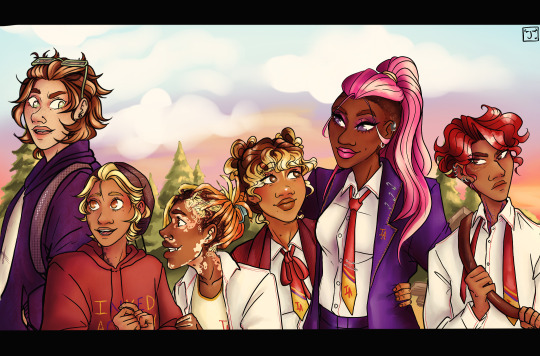
"INKED" by J.J. Jackalope out now!!
Have you guys considered what the world might've be like if sometime a century ago, people started being born with ink embedded into their skin, and powers at their fingertips? No? Well you should start, because I have the new-age queer book for you.
Think X-Men meets coming-of-age meets a bit of Percy Jackson action.
My goal is to give a sense of belong to anyone whose eyes grace my work. I know how important rep is to every minority and I want to do everything I can to give that representation.
Check out my website to learn more and buy!
Here's the book blurb :)
After being in online school for the last four years, Scottlin Vincino starts his Junior year at a new private boarding school an hour from home. It should have been similar to any other in-person school-- but alas, they had everything Scottlin didn’t.
A mark.
He'll have to keep it a secret, but it gets tricky when you have a knack for ending up in the infirmary… Whether it be for the hot boy you just met, or you're swept up in one of the freak accidents at the school that seem to just keep happening.
Scott will have to juggle his sexuality, his grades, and his new friends all while solving the mystery of what is happening to his new academy.
#books#book#author#writing#writer#selfpublishing#self publish#YA novel#YA novels#lgbt#lgbt literature#trans literature#gay literature#gay PEOPLE OKAY???#poc characters#lgbt characters#oc#ofc#oc art#original character#ocs#my ocs#publishing#ad#gay romance#mlm#wlw#all#just all of them#poly
181 notes
·
View notes
Text
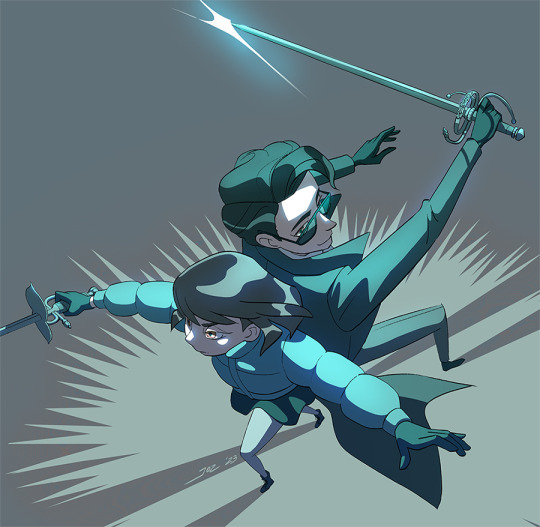
Just finished the books. Now what am I going to do with my life.
#lockwood and co fanart#locklyle#lockwood and lucy#anthony lockwood#lucy carlyle#digital drawing#digital sketchbook#lockwood x lucy#ya fiction#book fanart#book characters
260 notes
·
View notes
Text
boy who teaches you how to dance x girl who teaches you how to fight
#THE ONLY SUPERIOR SHIP#I NEED MORE OF THIS#fiction#romance#tropes#shipping#i don't know how to tag#enola holmes#enola holmes 2#tewksbury#holmesbury#viscount tewksbury#books and libraries#ships#my ships#young adult#ya fiction#please i'm begging you#young adult fiction#crying over fictional characters#fictional crushes#fictional couples#women#fictional characters#fictional men#someone said#cardan and jude#and i fully agree#same dynamic#my babies
3K notes
·
View notes
Text
I SPENT A REALLY LONG TIME ON THIS I HOPE YALL LIKE IT

Oh hay also book 3 comes out this November :)
#books#clowns#ya books#caring for your clown#lgbt+ books#lgbt+ characters#cfyc#youtube#animation#owl city#music video#rainbow veins#animated
655 notes
·
View notes
Text
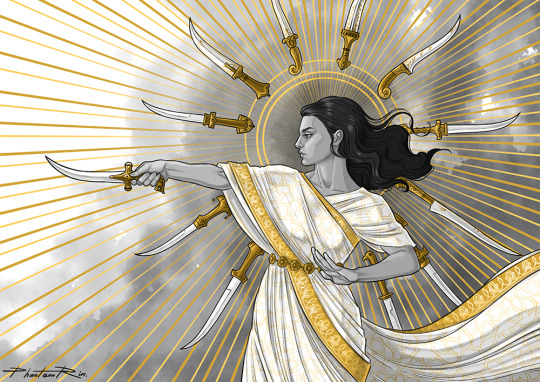


Guess I haven't properly posted these yet...
"Spice Road" promo-art for Maiya Ibrahim.
Featuring Imani, Qayn and Taha.
466 notes
·
View notes
Text

– Amanda DeWitt, Aces Wild: A Heist
#Some people join chess club#some people play football. Jack Shannon runs a secret blackjack ring#asexual protagonist#ace rep#whole cast of ace characters#Las Vegas heist#book quote of the day#Amanda DeWitt#Aces Wild#heist novels#ya#thriller fiction#asexuality# identity# lgbtqia+ rep books
307 notes
·
View notes
Text
I haven't seen Wish (2023) yet, but I keep seeing people mourning over the scrapped concepts that Disney explored for a human star character possibly being the secondary lead and love interest in the movie.
Gonna take this time to plug in my little queer space opera graphic novel series with the first book coming out in 2025, literally about a human star boy who falls in love with a human.

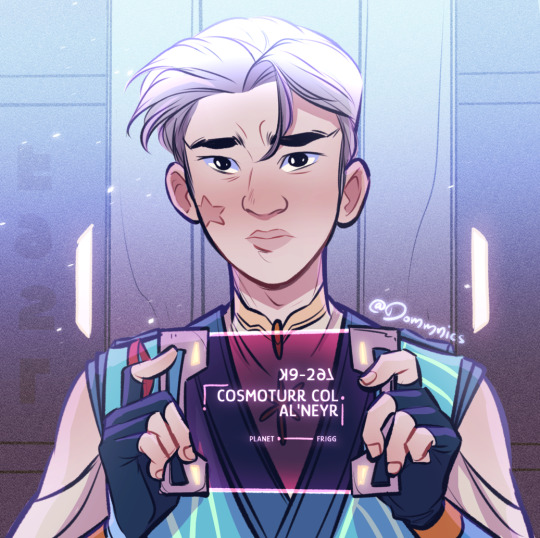

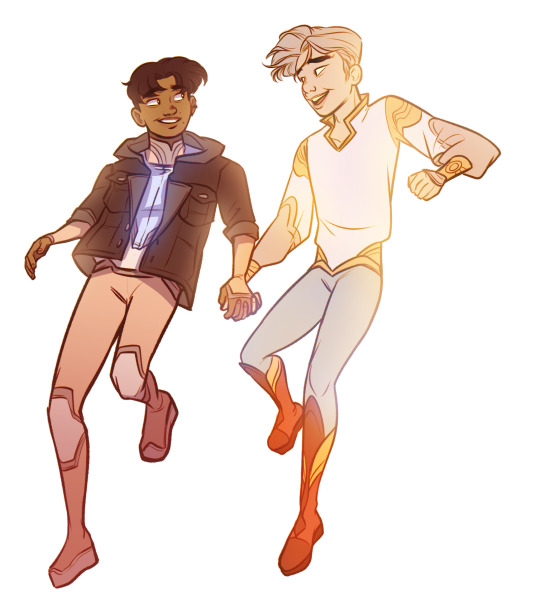
--
Check out more of my work on other platforms!
My Instagram -- My Twitter
#graphic novel#kloud 9#kloud 9 book one#queer art#queer reads#ocs#original character#original characters#comic#comics#oc art#oc#oc artwork#queer artist#queer books#gay books#ya books#queer literature#queer lit#graphic novels#lgbtq graphic novels#lgbtq books#queer graphic novels#book love#ya fiction#indie author#mlm romance#queer romance#gay romance#wish
196 notes
·
View notes
Text


⭐️⭐️⭐️⭐️⭐️ “STARLION: The Thieves of the Red Night” OUT NOW 0.99 Kindle 19.00 Print
⭐️The Gods were real and their descendants have new jobs: Superheroes ⭐️
⭐️The most action-packed novel of the year, follows a young vigilante who goes undercover at a school for heroes in training, to find a thief among them and clear his own name. With a diverse cast of young heroes taking charge, StarLion melds the best of Marvel/DC and mythology for a world all of its own. ⭐️
⭐️Amazon⭐️
https://a.co/d/eQldNm3
0.99 Kindle
19.00 Print
Featuring:
-11 full color illustrations
-10 in-depth Character Profiles
-A world that fuses mythology and world history, where man and Gods have always walked side by side.
-Anime tropes such as flashy powerhouse battles, color-coded auras, a mysterious, yet inviting mentor, a military organization that has no problem hiring teenagers, and even a character with animal ears.
#indie books#books and reading#lightnovels#bookstagram#ya books#ya novels#marvel#black cosplayer#black anime characters#black anime#booksbooksbooks#black writers#goviral#mustreads#books of 2022#i read a lot#black manga#mhaoc#mha fic#bhna au#black clover#black clover fic
2K notes
·
View notes
Text

DAY III - "SIREN"
prompt list
#siren#ningen#mermaid#mermay#mermaids#maygic#maygic 2023#magic may#creature design#monster girl#tentacles#lilypads#illustration#character illustration#character art#character design#booktok#book#YA#young adult#my art#magic 2023
477 notes
·
View notes
Text
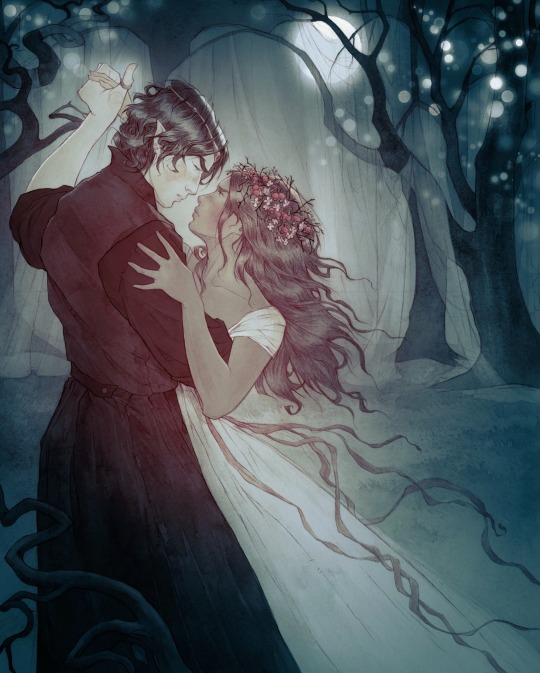
Jude: I hate you
Cardan: say it again
#cardan greenbriar#jude duarte#jude x cardan#the wicked king#the cruel prince#the queen of nothing#the folk of the air#tfota#book characters#ya fantasy#ekbelsher
2K notes
·
View notes
Text
How to Write Political Intrigue (with book recs)
POLITICAL INTRIGUE! Intrigue in general! What is it?
For the purposes of this post (as well as how it's usually used in the writing/reading community), think: scheming. Plotting. Conspiracies in the shadows, bids for power and survival, secret plans, masterful illusions, all of that stuff.
It could be on any scale that you'd like, from a duel of wits (think Light's and L's game of cat and mouse in Death Note)
...to a large-scale plot involving entire countries and their people (like any espionage networks during any major wars, such as the American Revolutionary War to World War II, and so many more)
...or even medium-sized conflicts (families, like in The Godfather, or smaller national disturbances like the Watergate scandal).
Below are 4 core tips on how you can successfully write (political) intrigue plots:
1. Read + Research
Despite how hard it may sound, it's actually pretty easy to craft a realistic yet thrilling intrigue plot—with so many examples in real life and fiction, you can easily base your plot on an existing one and just change a few things like the characters, setting, and maybe a few plot points.
History and current events are always great places to look to, but here are some books that are chock-full of great politics + intrigue:
Leviathan (Thomas Hobbes): one of the most famous treatises of politics + human nature and their intersection. The book is an in-depth exploration of human nature, government, politics, and all of the root causes of why they exist. While it does take a specific philosophical angle (you might not agree with Hobbes' ideas), they are detailed explanations of how things work + why they are required from one perspective.
48 Laws of Power (Robert Greene): GREAT BOOK for helping you plan out the means by which you want the intrigue to happen. There are lots of simplified rules that tell you why people plan and scheme (e.g. "control the options; get others to play the cards you deal," or "pose as a friend, work as a spy"). There are LOTS of really great small stories of when a rule is applied in real life that are also general plot inspo!
The Godfather (Mario Puzo): very very good, intricate, and more emotional because it deals with the intrigue surrounding families
Joseph Fouché: Portrait of a Politician (Stefan Zweig) (biography): Fouché is absolutely insane. A genius at political intrigue. His life is literally one of the craziest stories of scheming, betrayals, survival, and a general vying for power, especially behind the scenes.
The Prince (Machiavelli): obviously, I can't leave out the original tips + tricks book with explanations of WHY intrigue matters as a means, especially in terms of protecting your power.
Trust Me, I'm Lying (Ryan Holladay): a large part of intrigue plots (you need to cover up the actual game you're playing) is the manipulation of information, creating illusions and spectacles for other people to believe. This book goes in-depth about media manipulation and information wars.
Empire of Pain (Patrick Raden Keefe): takes a rather different angle, through the personal/corporate manipulation of government, as well as how wealth dynasties (especially within families) are established. Remember the opioid crisis? This book explores the generational politics of money and power that led up to that.
Prince of Thorns (Mark Lawrence): Look! Fiction! Anyway, I'm biased because it's one of my favourite works of fiction of all time, but it explores political intrigue not only through an actor participating in it, but through the lens of the common folk. I.e., the consequences all that power play has on the populace due to a lack of actual good governance...
A Song of Ice and Fire (George R. R. Martin): I haven't personally read/watched anything GoT, but it's pretty much obligatory to put this series down in a post about political intrigue. It's famous for doing it well.
2. Plan. Like, meticulously
First of all, decide what scale you want your intrigue to be on: large-scale government/international affairs type, a corporation thing, something between two people, or even within a family? There are so many possibilities.
Intrigue plots are like mysteries; they must be tightly logical to be satisfying. One of the best ways of ensuring this is through analyzing each involved party—the actors.
Each actor has their own motivations, goals, and psychologies. After you establish what they want OUT of their intrigue, think about how they'd go about achieving it: a naturally hot-headed person might try to intimidate their way into getting what they want, or they might learn through the course of the story to cool down a bit.
A naturally imaginative and analytical person might come up with all sorts of scarily genius plans, and near-flawless execution. Of course, they would also react in different ways, depending on personality. Character consistency alone will make your plot seem that much more logical.
However, cracks in logic will happen because humans are inherently imperfect and not always rational. These cracks must be DELIBERATE and realistic and must seem planned out; they can't seem more like the author forgot a detail, or didn't know how to explain something (e.g. something happened and the writer never included the consequence of it because they forgot). It must be clear that it is a flaw on the character's part.
3. Never write intrigue for the sake of the intrigue
The incentive of all scheming comes down to mainly two things: gaining power and keeping it. Of course, you could choose to explore more unusual things, such as characters exercising intrigue to satisfy boredom... (think Light and Ryuk from Death Note).
But, the bids for power, security, and survival can be used to highlight things about human nature. Themes to explore include ambition, sacrifice, the pursuit of happiness, the corruption of character, the preservation of innocence in a cruel system, etc.
4. Explore through a narrow lens
Most intrigue plots are full of complex motivations, characters, goals, and the means they use to achieve said goals.
You should gradually let your intrigue plot unfold through the POV of a few characters, preferably one or two. An omniscient narrator for this type of story is INCREDIBLY difficult to pull off without confusing the reader.
However, more POVs work if you use all of them to focus on ONE or a few intrigue plots only—it can provide a multi-layered effect, exploring the same line of action and consequence through different perspectives. But, if everyone has their own intrigue plot, it's too easy to create a tangled mess where readers can barely delineate one plot from the next.
∘₊✧────── ☾☼☽ ──────✧₊∘
instagram: @ grace_should_write
Sorry for the massive hiatus—I have officially started college!! I've been pre-occupied with settling in, classes starting, a social life, extracurriculars etc. etc...life has been super busy, but great :)
I've started working on my books as well as poetry more recently, and I'm glad I'm getting into a new workflow/lifestyle. It certainly is different, but I'm starting to enjoy it.
Anyway, I'm surprised it took me this long to do a post about this topic, considering the fact that it's basically my writergram niche and my entire personality IRL, but I think it was mainly because I was trying to find a good angle to approach this massive topic. But, stay tuned for (probably) a part 2 because there's SO MUCH MORE to cover.
Hope this was helpful, and let me know if you have any questions by commenting, re-blogging, or DMing me on IG. Any and all engagement is appreciated :)
Happy writing, and have a great day!
- grace <3
#writers on tumblr#writing#booktok#writeblr#novel#writer#writerslife#wattpad#writing tips#writergram#wip#media analysis#book recommendations#bookstagram#plot holes#writing ideas#ya fantasy#fantasy#ya fiction#characters
200 notes
·
View notes
Text
what is with booktok authors (and by extent, bad fanfic authors) with making their main characters always do some weak ass comebacks.... self insert wish fulfillment fr
#now instead of winning fights in the shower with your shampoo bottles you doin it with fictional characters in ya books..#they want people to go 'OOOOOO' like a disney channel sitcom so badddd#txt
101 notes
·
View notes
Text

2023 reads
The Spider And Her Demons
YA Australian urban fantasy/horror
about a Malaysian-Chinese girl who’s half spider-demon, just trying to keep her head down and survive high school
when she accidentally kills and eats a man in front of the most popular girl at school, they strike up a strange friendship and she starts to learn more about herself and the supernatural world
aroacespec/sapphic ish
#The Spider And Her Demons#Sydney Khoo#loveozya#aroaessidhe 2023 reads#you give me a teenage girl with giant hair spider legs who scuttles across her bedroom wall on page 3#and then eats a man and i am already sold.#also aus books are always so familiar compared to US books :)#and yes sexuality stuff is ambiguous but basically: a bunch of discussion on relationship hierachies (ie friendship equally/more important)#themes of feeling unlovable bc you're different and different forms of love#multiple times the MC says she has no interest in dating or relationships and also is touch (and maybe sex) repulsed#- but of course that Also has to do with the whole Being A Monster thing#and it definitely shows some kind of attraction to dior - ie looking at her lips/bare skin; blushing; etc#and ends on sort of hand kiss / 'is this something??' vibes#I asked the author and they said they see them as QPR / platonic soulmates but are not at the point where they would know what to call it#which makes total sense to me!#the part of me who wants more obvious aroace YA wishes it was a little more specific#but also I DO love ambiguity and I think it wouldn't be true to the characters#who are clearly not even ready to start figuring that stuff out.#and also. aroacespec sapphics is like. also something i want#also like. I think it's reductive to assume just because 'looks at lips' is a common allo attraction trope....doesn't necessarily mean#it has to be that. yknow.#anyway. i loved it a lot.#gross spidergirl (affectionate)......#also dior is such an interesting and complex character. like another book could have made her nicer or less fucked up
194 notes
·
View notes